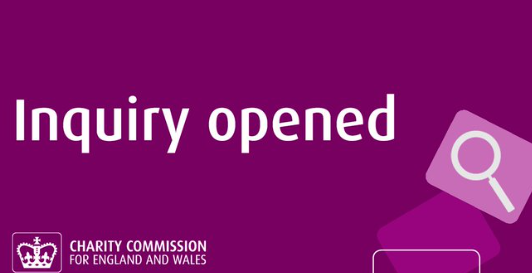Money Ready’s Scotland Manager, Kavneet Gill, reflects on her career journey, the power of financial education, and the importance of seeing yourself in leadership.
How did you land your current role, and what was your career path leading up to it?
I’m a second-generation British Indian and the first generation in my family to attend university. When I was younger, my parents worked long hours, seven days a week, running a family-owned convenience store. Their dedication and resilience deeply shaped my own values and work ethic.
During my teaching career, I worked with a range of age groups, primarily teaching children aged seven to 12 across Year three, Year five, and Primary seven.
What I valued most about teaching was witnessing those “light bulb” moments, when a child began to grasp a concept they once found challenging, and seeing their confidence grow as a result.
Education has always been a significant part of my career for several reasons. Growing up in a predominantly white area, I never had a teacher of colour throughout my primary or secondary education. In fact, in my entire year group at high school, there were only two students of colour, including myself, out of 250.
This lack of representation had a lasting impact – I didn’t see teaching as a path for me simply because I never saw anyone who looked like me in that role. I believe strongly in the importance of representation; all children and young people should see themselves reflected in the people around them. It shapes what they believe is possible for their own futures.
After working as a primary school teacher at an academy in North Kensington, London, I returned to live in Scotland, where I’d grown up. At this point I decided to transition away from classroom teaching while continuing to pursue my passion for supporting children and young people. I reflected on the organisations I had encountered whose values and work I admired, one of which was Money Ready.
I conducted some research and found the contact details for the Scotland Area Manager, Gemma. I reached out via email to introduce myself, expressed my interest in working for the organisation, and asked to be kept informed about any future opportunities within the Scotland Hub. Gemma responded warmly, which further strengthened my desire to join the team.
Several months later, Gemma told me about an upcoming vacancy for the Scotland Manager position and shared the application link. Following two rounds of interviews and assessments, I was offered the position - an opportunity I was delighted to accept. I started the role in April 2025.
What is the most interesting part of your job?
The biggest insight I’ve gained since joining Money Ready is just how much broader the organisation’s impact is than I initially realised. Having previously only seen the Primary programme, I wasn’t aware of the extensive work delivered for young adults and adults.
I’d say the most interesting part of my role is the variety it offers. Not only do I manage the Scotland team, but I also have the opportunity to deliver sessions myself. With my background in working with children and young people, I truly value the chance to get out and work face-to-face. Being able to connect directly with learners is something I’m incredibly grateful for.
I get to work with a diverse range of people and support them in building healthy financial habits. It’s empowering to know that I’m making a real impact in their lives. On top of that, I’ve learned so much myself since joining Money Ready – every session I observe teaches me something new about money. It’s fulfilling to be in a role that supports others while continuing to help me grow, too.
What would be your alternative career?
As a child, I had two very different career ambitions – one was to become a hairdresser, and the other was to be a barrister. Looking back, I think they reflected two sides of my personality: a creative, hands-on side and a strong sense of justice and communication.
The idea of being a hairdresser appealed to me because I loved the idea of working directly with people, using my hands, and seeing an immediate transformation – it’s a creative profession that’s also very personal. I’ve always enjoyed the practical side of work and the satisfaction that comes from helping someone feel better about themselves, which I still carry
into my role today.
On the other hand, the ambition to become a barrister came from my natural curiosity, love of speaking up, and desire to advocate for others. I liked the idea of using words and reason to influence change and stand up for what’s right. That sense of purpose – wanting to support others and help them find confidence or clarity – is something that still drives me in my
current role, especially when it comes to financial education and empowerment.
So while I didn’t become either of those things, I think it’s interesting how both paths hinted at who I am now: someone who loves working with people, values creativity and communication, and wants to make a positive difference.
What inspired you to work in the charity sector?
I was drawn to work for Money Ready because I wanted to be part of a charity that equips children and young people with essential skills and knowledge through high-quality financial education.
I first came across Money Ready while teaching in London, where they delivered sessions to my classes each year.
When Money Ready delivered sessions to my classes, I was struck by how engaged the pupils were, and I found myself equally engaged. The content covered important topics that I had never been taught during my own time at school, which highlighted the value and relevance of their work.
When I moved back to Scotland, I reflected on organisations that truly make a difference to children and young people. Having seen the impact of Money Ready first-hand, it stood out as an organisation I knew I would be proud to work for.
What challenges do you face in your day-to-day work?
One of the main challenges I face in my role is ensuring that I adapt our sessions to meet the varying needs of the young people and adults we engage with. Every group is different, so tailoring delivery takes a lot of planning and creativity. But it’s also one of the most rewarding parts of the job – seeing children and young people actively engage in a session that’s been thoughtfully adapted to meet their needs, ensuring it’s both accessible and equitable.
The challenges I face are also what make the role dynamic, and they push me to keep learning and improving - both as a manager and as an educator.
What would make the biggest positive difference to the sector right now?
Financial education shouldn’t be seen as a “bonus” – it’s an essential life skill that all young people deserve access to. With the financial landscape becoming increasingly complex, from online spending and digital banking to rising living costs and credit use, it’s vital that children and young people are equipped early on with the knowledge, confidence, and critical thinking skills to make informed decisions.
To achieve this, we need continued government support and investment – not just in policy, but in practice. That includes funding high-quality resources, providing training for educators, and empowering schools to make financial education a consistent and meaningful part of the curriculum.
Doing so would not only strengthen financial capability, but also contribute to tackling long-term challenges such as poverty, inequality, and economic exclusion – by giving the next generation the tools to take control of their financial futures.
Latest News
-
Civil Society Covenant blighted by delays and U-turns, report warns
-
More than 30 jobs at risk as hospice charity looks to close home care service
-
Cranfield Trust: A guide for charity leaders on navigating local authority devolution
-
Friday funding roundup - 20 February
-
Former youth charity chief to lead corporate social responsibility organisation
-
Christian charity’s failed bid to buy a new church breached fundraising code
Charity Times video Q&A: In conversation with Hilda Hayo, CEO of Dementia UK
Charity Times editor, Lauren Weymouth, is joined by Dementia UK CEO, Hilda Hayo to discuss why the charity receives such high workplace satisfaction results, what a positive working culture looks like and the importance of lived experience among staff. The pair talk about challenges facing the charity, the impact felt by the pandemic and how it's striving to overcome obstacles and continue to be a highly impactful organisation for anybody affected by dementia.
Charity Times Awards 2023
Mitigating risk and reducing claims

The cost-of-living crisis is impacting charities in a number of ways, including the risks they take. Endsleigh Insurance’s* senior risk management consultant Scott Crichton joins Charity Times to discuss the ramifications of prioritising certain types of risk over others, the financial implications risk can have if not managed properly, and tips for charities to help manage those risks.
* Coming soon… Howden, the new name for Endsleigh.
* Coming soon… Howden, the new name for Endsleigh.
Better Society

© 2021 Perspective Publishing Privacy & Cookies




.jpg)









Recent Stories